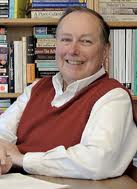
In recent months, there has been a steady stream of high-profile stories about Catholic school policies towards gay employees. In one, the front page of the New York Times relayed the controversy at a Catholic school in Washington State that fired an administrator after he married another man. In another, the front page of the Boston Globe featured a story about a Massachusetts Catholic school that cancelled its job offer to a prospective food services director when it learned that he was in a same-sex marriage.
Predictably, the tone of both accounts, and the great majority of those quoted, was sympathetic toward the victims of these decisions. While I understand this instinctive reaction, I’d like to point out the implications of limiting the freedom of non-public schools to choose whom to employ.
First, a word about my own background: For more than 20 years, I was the Massachusetts official responsible for enforcing the law against discrimination in schools. After I became a professor at Boston University in 1991, I was appointed the university’s representative on the Governor’s Commission on Lesbian, Gay, Bisexual, and Transgender Youth. Currently I serve on the state advisory committee to the US Commission on Civil Rights. And I am not Catholic.
I am also vice president of a Geneva-based NGO that promotes educational freedom around the world. Experience with many countries has convinced me that we should be very careful about limiting the autonomy of non-public schools – and, indeed, of public schools, but that is another discussion – to preserve and express distinctive visions of the nature of a flourishing human life and how to promote it in children.
Educational freedom, both the freedom to provide education and the freedom to choose a school for one’s children, is protected as a basic human right by several international covenants, as well as by decisions of the U.S. Supreme Court. These freedoms are interdependent: that of parents to choose is meaningless unless there are accessible schools with different approaches to education, and that of schools (and of educators) to create such distinctive approaches is frustrated if they must serve families whose children are assigned involuntarily and thus must provide a lowest-common-denominator education that no one will object to.
If schools are not allowed to differ on the basis of different understandings of the Good Life, as faith-based schools and also many independent secular schools do, they will differ only on test scores. Parents with more resources will always find a way to get their children into those with higher scores, either through moving to affluent areas or through paying tuition. Because they offer a distinctive education, a nationwide study by Jay Greene found, private schools in every region of the country were more racially-integrated than residence-based public schools.
But schools, whether private or choice-based public schools like the charters that have been so successful in Boston, cannot maintain a clear focus on their distinctive educational mission unless free to select teachers who are whole-heartedly committed to that mission, whether it be Montessori, or Catholic, or Jewish, or a focus on the arts. Without a team of staff who agree on their shared mission and can work together on the basis of mutual trust, such schools of choice might as well pack it in.
The issue of the right of Catholic schools, specifically, to employ only teachers who in their teaching and in their lives (to the extent these are visible to students) do not undermine Catholic principles has been litigated in many countries. The principle on which that right has been upheld is often called “the duty of loyalty”: the freedom of the individual teacher to dissent must be considered in the context of the rights of other teachers who have chosen to work in a particular kind of school, and of parents who want such a school for their children.
In American cases, the courts have generally held that teachers in faith-based schools are similar to clergy in other religious institutions, and that there is thus a “ministerial exception” to the application of anti-discrimination laws. This applies to the Washington State school: the vice-principal who was fired was in a leadership position, and had willingly signed a contract promising to abide by Church teachings in order to be an example for students.
This does not apply in the same way, it seems to me, in the Massachusetts case, since a food service job (except in an Orthodox Jewish or Islamic school!) could not reasonably be considered to involve upholding religious teachings.
Bottom line: Catholic and other faith-based schools should be applauded rather than condemned for ensuring that they and all of their staff present a message consistent with their beliefs. That is what integrity requires.



[…] FREEDOM: Human rights demand that Catholic schools should be free to fire gay employees for modeling beliefs their school stands […]